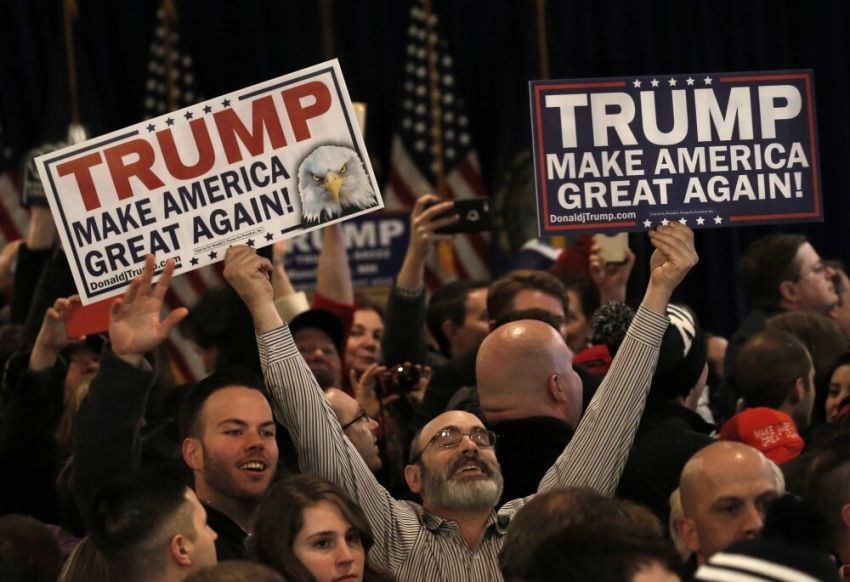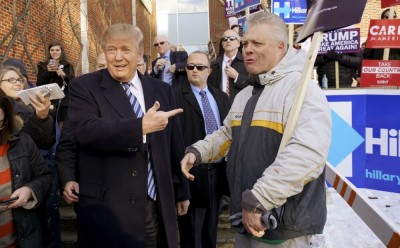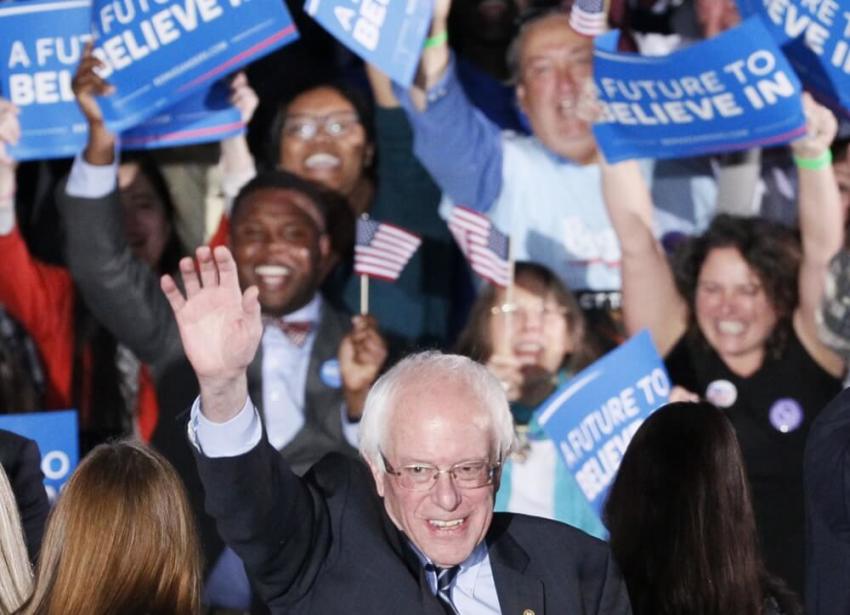Donald Trump, Bernie Sanders Win New Hampshire Primary

MANCHESTER, N.H. (Reuters) - Riding a wave of voter anger at traditional politicians, billionaire Donald Trump won New Hampshire's Republican presidential nominating contest on Tuesday and U.S. Senator Bernie Sanders of Vermont won the Democratic primary.

The results, though decisive, did little to clear up confusion about who would emerge as the establishment contender to Trump on the Republican side, and there were signs that the campaign of Sanders' rival, former Secretary of State Hillary Clinton, was defensive about her future prospects.
Trump's win solidifies his front-runner status in the race to be the party's White House nominee for the Nov. 8 election. The former reality television star, 69, has campaigned to deport illegal immigrants and temporarily ban Muslims from entering the United States.
Ohio Governor John Kasich was projected to win second place in the Republican race, ABC News and MSNBC reported.

Sanders, who describes himself as a democratic socialist, has called for eradicating income inequality, breaking up the big banks and providing free college tuition. He had 58 percent of the vote based on about 29 percent of the vote, ahead of former Secretary of State Clinton, who had 40 percent, CNN said.
"You can be certain that our victory tonight will prompt a desperate response from the nation's financial elite and the political establishment who want to stop our campaign to transform America," Sanders said in an e-mail to supporters.
Clinton had for months been the front-runner nationally. But a Reuters/Ipsos poll done Feb 2-5 showed Clinton and Sanders now in a dead heat.
Clinton, 68, congratulated Sanders, 74, in a speech to supporters. She defended her progressive stances and vowed to be the candidate who fixes problems and not just state them. She acknowledged she had work to do winning over young voters.
"People have every right to be angry but they're also hungry, they're hungry for solutions," she said. "I will work harder than anyone to actually make the changes that make your lives better."
Clinton campaign manager Robby Mook said in a memo they had "split" the first two nominating contests - Clinton won Iowa last week - and said the Democratic nomination would "very likely" be decided in March.
The Clinton campaign said the support of black and Hispanic voters would be key to victory. The next primary races are in Nevada and South Carolina later this month.
"It will be very difficult, if not impossible, for a Democrat to win the nomination without strong levels of support among African-American and Hispanic voters," Mook wrote in a memo titled "March Matters."
Trump was in first place with 34 percent of the vote. Ohio Governor John Kasich, who staked the viability of his campaign on the New Hampshire outcome, was in second place with 15 percent, CNN said, based on an estimated 27 percent of returns.
A logjam of Republican candidates were in a dead heat for third place. Former Florida Governor Jeb Bush, the son and brother of former presidents, had 12 percent; U.S. Senator Ted Cruz of Texas, who won the Iowa caucus last week, had 12 percent, and U.S. Senator Marco Rubio of Florida had 10 percent.



























